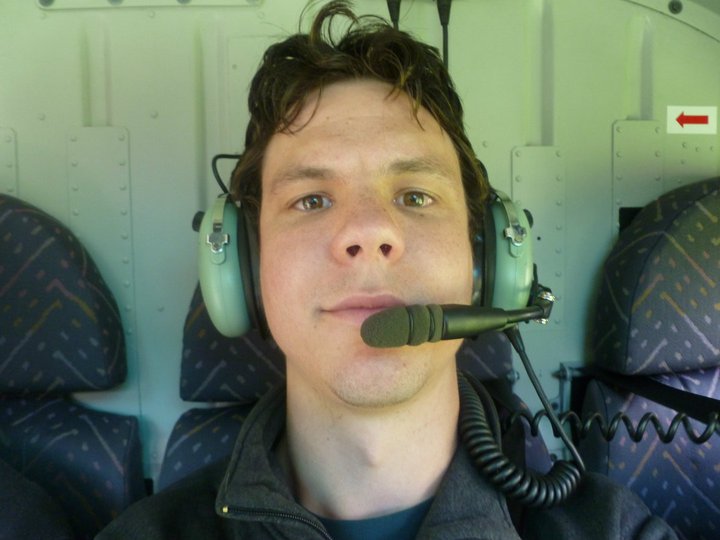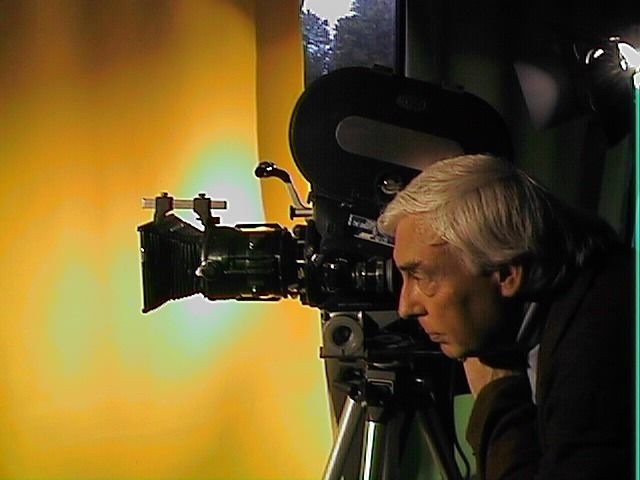ASK & DISCUSS
INDEXIs there a scriptwriter out there who would be willing to advise me how to go about turning one of my own stories into a script?
8 years, 3 months ago - Richard Howard
I recently self-published my second book of short stories, which are all quite dark and most of which have a twist in the tail. I want to write a screenplay of one of them, a ghost story, which I'm sure would work wonderfully as a film, but am not sure what the best approach for adapting it would be. I'd very much appreciate the input of an experienced scriptwriter to advise me how to tackle this particular story.
I have written seven drafts of a screenplay of another of my stories, but I just can't work out where to begin with this new story.
I'd be interested in either collaborating with an experienced scriptwriter, or writing it myself based on their advice. Unfortunately, I'm not in a position to pay for such help or advice but, in the event of a film materialising from the script, would naturally want to credit and reimburse whoever helped me bring it to fruition. I have a website: www.richard-howard.com and can be contacted by email at richard@richard-howard.com I live in Surrey. Thank you.
Only members can post or respond to topics. LOGIN
Not a member of SP? JOIN or FIND OUT MORE
8 years, 3 months ago - sati sohal
Hi Richard
Having a quick scan of your work and interests as mentioned on your website, I will be willling to collaborate to bring your short story into production. My work also reflects some of your interests. I run a small production company www.talkingpicturesltd.com and have the resources to realise your work onto screen.You are welcome to come to my office at the Compass Theatre to discuss further. Kind regards Sati
8 years, 3 months ago - shirley day
HI Richard I am a screenwriter, but I also mentor students and have turned some of my short stories into award wining theatre and screenplays. I couldn't work for free. But would be willing to mentor you on the adaptation. Message me if you would like to discuss this further. All the best. Shirley
8 years, 3 months ago - Stuart Wright
Given you know the story the best and you've written screenplays already, I would suggest looking at short stories/ghost stories that have already been adapted to screen and see how they made the transition.
The Shawshank Redemption which is an adaptation of Rita Hayworth and Shawshank Redemption a novella by Stephen King
The Lawnmover Man by Stephen King (1975) and the film of the same name (1992).
I've done this kind of analysis once for the film WAKE IN FRIGHT. The book (same title) by Kenneth Cook has much of the story going on in the protagonists head - as book have a habit of doing. In the film version the character played by Donald Pleasance is much more expanded than in the book and acts as a voice to externalise those thoughts and feelings of the protagonist.
As yours is a ghost story look at The Legend of Hell House (1973) directed by John Hough vs the American novel Hell House by Richard Matheson
Or Ghost Story is a horror novel written by Peter Straub. The book was adapted into a film by the same name in 1981, minus the novel's fifth protagonist character, Lewis Benedikt.
Best of luck
8 years, 3 months ago - Barry Staff
See if you can apply an intriguing max 50-word logline to any of them, and that's the one to go for. The classic, an interesting someone wants something and something's stopping them, is capable of great complexity and subtly. For instance, it works when applied to all of Shakespeare's great tragedies.
8 years, 3 months ago - Alice Charles
There are any number of online classes you can take (check out Writers Store, Screenwriting University etc) - not to mention books. Take a look at WRITING TREATMENTS THAT SELL by Ken Atchity & Chi Lee Wong - there's a section on adaptations in it. But there are many other titles - just google or search on Amazon. However, I would recommend that you start by looking at book to film adaptations - starting with BROKEBACK MOUNTAIN, which I consider one of the best. You can order the short story with the script on Amazon.com.
8 years, 3 months ago - Ed Griffiths
Hi Richard, I have direct experience of doing this with my own work, translating a story into screenplay. No softening the issue at hand; it's HARD. Depending on your story of course, if it's dialogue-heavy or linear from the beginning, adaptation is fairly straightforward. If it's more abstract and narrative-based, especially if a great deal happens in the character(s) perceptions or inner world(s) you may need to rethink the entire progress of the story. A visually-based script or screenplay needs to work from the perspective of one or several characters in a direct scene-by-scene way. It might help you to map out linear events in the story you want to adapt as a guide. Once you have that there is a functional time-frame for the script or screenplay to take place in. Skipping backward and forward in time, if any, needs to be addressed either by imposing a more event-by-event structure, through flashbacks or addressed visually in some other way. Key to all of this I've found is the sometimes difficult task of identifying what the story is actually about. Proceeding from that may take the script in a very different direction from the original story. But if the premise of the story is strong, any script or screenplay variation you may come up with will 'ring true' for the characters and situations. Hope this helps!
8 years, 3 months ago - Nick Goundry
Hi Richard. There's a risk of over-complicating things, but my first step with a new project is always the same - who's the main character, what does she want and what's the main obstacle in her way? If you can answer all three questions fairly easily, then you already have the basic skeleton of the story in place. It's tricky to move forward without the protagonist, goal and obstacle. That's what producers are looking for.
8 years, 3 months ago - Alpesh Gor
Hi Richard, congratulation on the publication of your second book.
I'm not a scriptwriter (although I am at this moment in time giving it a go) so won't even think about giving you direct advice on that front. But I have been on the look out for a good horror film to produce. I'd love to read your story to see if it could be something we could work on once your script is complete. I also know scriptwriters who may be able to help you. One of them has only just begun writing a horror script himself.
Wishing you the best of luck.
8 years, 3 months ago - Richard Howard
I'd like to thank everyone who took the trouble to respond to my request. It's been most instructive and I'm now re-thinking whether I'm the right person to translate my original story to the screen. All good wishes for your own creativity. Richard.
8 years, 3 months ago - Franz von Habsburg FBKS MSc
Hi. Following on from Ed, yes, the narrative bits can be problematic. This may help from a practical point of view (I've adapted several books) Physically I have two windows open: an electronic version of the book in one and Final Draft open in the other. I then block'n'paste chunks at a time. Converting the characters and dialogue is dead easy, as is (usually) action, remembering to change all to present tense. Now here's the difficult bit - thoughts and descriptions etc, but I leave for the time being. Just get characters, dialogue and action done, then Save. You then have to make decisions on the remaining bits which (I find) fall into one of three options: 1. Unimportant - delete. 2. Fairly important thought - if small then the character just mutters under their breath. I've even had to create another character so that they can impart this thought. 3. Another option is to create a flashback. The backstory can be important. All this is the painful and yet rewarding part of the job as you discover ways out. Enjoy!
8 years, 3 months ago - Glyn Carter
One questioin an adapter has to ask, is: do I want to create a filmic representation of the book? Or, do I want to use the book as a launch pad to create the best film screenplay I can? The latter will almost certainly result in a better film. But will be all but impossible for the original author to do, because it demands a fresh approach. The English Patient was deemed unfilmable, but the adaptation is an Oscar-winning film because Minghella chose to place what is the secondary story in the novel at the heart of his film.. And Michael Ondaatje gave his blessing.
[In one of those inexplicable wrong choices the Academy regularly achieves, the English Patient didn't win best adapted screenplay that year. It was nominated, alongside another perfect inventive adaptation, Trainspotting, plus Miller's The Crucible and Branagh's Hamlet. Oh, and the winner was... Sling Blade, adapted from his own short film (does that even qualify?) by Billy Bob Thornton. Sling Blade! that milestone in... oh, never mind.]










